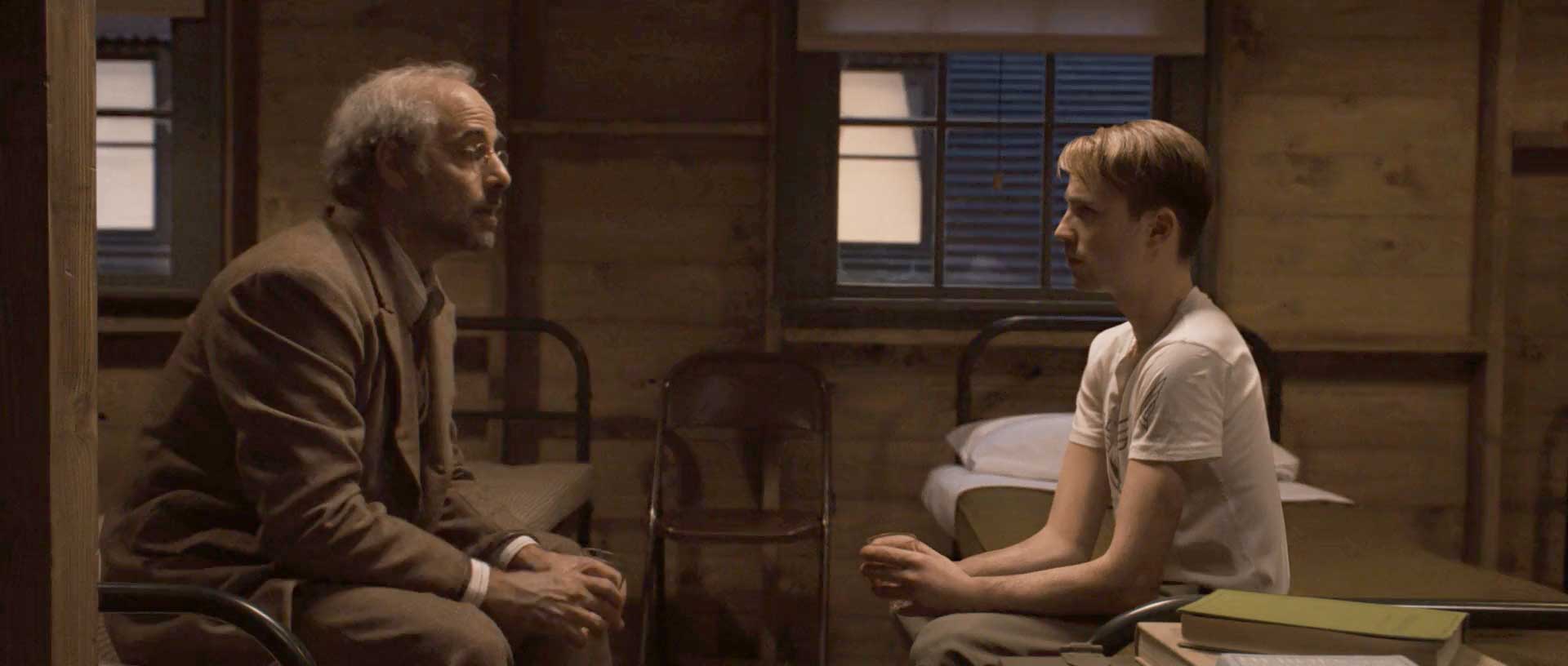Released in July 2011 at the tail-end of that year’s summer movie season, Captain America: The First Avenger packed a strong emotional punch, perhaps even the strongest among all movies belonging to Phase One of the Marvel Cinematic Universe. Directed by Joe Johnston and produced by now regular Kevin Feige, the movie introduced us to Steve Rogers, a scrawny, sickly kid from Brooklyn determined to serve in the army at all costs. That Captain America is the first MCU Avenger and even the first movie to use the team’s name is perhaps well known. What’s not as well known is that this is the fourth Captain America movie in existence and the fifth live-action depiction of the character after a 1944 TV Series, a 1979 TV-movie, its 1979 sequel (Captain America II: Death Too Soon) and a 1990 reboot.
It’s likely the modern-day Captain America could’ve ended up similar in quality to its poorly produced comrades were it not for the retrospectively fortunate development stallmate the movie went through. Halted for nearly three years due to a lawsuit over the character’s rights, Marvel Studios decided to make it their way and incorporate it into their MCU by the time the suit was settled in 2003. Directors like Jon Favreau and Louis Leterrier were interested in the project before being assigned other movies, with Jurassic Park III‘s Joe Johnston stepping in to lend in his human touch. Just as Thor chose Kenneth Branagh to handle its similarities with shakespearean ethos, Johnston was chosen for his experience directing The Rocketeer which was the kind of war movie feel Marvel was probably aiming to emulate.
With a track now of securing the right names in key roles, Marvel pursued and eventually got Chris Evans to play the titular role, despite the actor having already appeared as Johnny Storm in Marvel-Fox’s Fantastic Four movies. An apprehensive Evans would pass on the role nearly thrice, before being convinced to take on the project. And what a casting that’d turn out to be; not only did Evans embody the physicality of Captain America, but he more importantly embraced the humanity of Steve Rogers and made us care about skinny Steve and the core of who he was. The opening minutes of the movie constitute some strong character building work that the MCU has done, selling you on Rogers’ conviction to join the army despite his almost diseased pre-serum built. And Captain America’s role in leading the forthcoming superhero team-up only reinforces the importance of casting the right man for the job.
But as fitting as Evans is in the role, he is supported by an equally strong ensemble as well as a narrative that’s grounded within the universe’s rules of plausibility. Let’s talk about the latter first. Determined to assist in the United States’ war efforts, Rogers tries to enlist in the army multiple times by faking his details but is rejected. Enamored by his will, German scientist Abraham Erskine brings him into a secret super-soldier program, one which he passes his flying colors. He ends up being chosen to undergo the transformation, and emerges enhanced to the peak of human fitness. Initially used as a propaganda tool by the moniker of Captain America, Steve’s strength is truly tested when he defies orders to rescue over a hundred soldiers from the 107th Infantry, among whom is his childhood best friend Seargent James Buchanan “Bucky” Barnes. Now realizing his abilities, a previously resentful Colonel Chester Philips formulates a plan to take down Nazi scientist Johann Schmidt’s HYDRA bases with the help of genius inventor Howard Stark and sassy, strong-willed Peggy Carter.

Pretty much all the supporting characters go through the motions in a way that makes them apt for their respective roles. Sebastain Stan leads in the initial sequences when Steve is yet to attain his super-strength, and convincingly takes a backseat when Steve is enhanced and becomes the fan favorite. Hayley Atwell owns the role of Peggy Carter like no one else could’ve, displaying at once the glamour and strength in her portrayal. Perhaps my favorite performance comes from Stanley Tucci who acts as Captain America’s equivalent of Ho Yinsen in Iron Man as becoming the singular living figure in Steve’s life inspiring him to remember who he is. With his subtle mannerisms and flawless german accent, he infuses life into the role and acts as the father-figure that Steve never had, having lost his Dad early on to war. Hugo Weaving gives a menacing performance and Tommy Lee Jones does the gruffy colonel like a pro, despite both actors simply going with the flow. And Dominic Cooper as Howard Stark nicely models his flamboyant act on Robert Downey Jr.’s Tony Stark, at once mirroring his future son’s personality.
What The First Avenger is also known for, is its exceptional visual effects that transformed the hefty, bulky Steve Rogers into a thin, pale, malnourished version of himself. Aided by theater Leander Deeney and Lola VFX, every scene with Rogers is filmed four times – once normally, once with Chris Evans in green screen, once without Evans and once with Leander mimicking Evans’ actions – to give the effects team as much material as required to alter their approach to the transformation based on what suits the scene best. The result is something you barely notice, which is great for this is a visual effect that just needs to work for the movie to work. As Fiege rightly said, no one would buy Steve’s journey if we couldn’t buy into skinny Steve. There’s a lot of other CGI work spread out across the movie, whether it’s in The Red Skull’s face manipulation or the glorious action sequence montage that sees Rogers and the Howling Commandos take out HYDRA’s bases.
Speaking of which, that’s actually my major gripe with The First Avenger. Has always been. For about the first hour, it proceeds amazingly, the writing flowing from one scene to the next until the point where he’s truly heralded as Captain America by Bucky for rescuing the trapped soldiers. After which the movie descends into a barrage of non-stop action that sees our team mates take out HYDRA’s facilities around Germany before finally seguing into the climactic showdown where Cap just barges into the Skull’s concealed lair. There’s so little breathing room for characters to grow that it almost feels like the studio took over from Joe Johnston at this point and directed the remaining half for him. It’s one of the prime reasons why the movie doesn’t work as well as it should for me; for all the heart that it has, this imbalance of action with drama is what seems quite off-putting.
And continuing with the excellent trend kickstarted by its predecessor, The First Avenger comes with another short film in its home media release. A fun outing, this One-Shot shows another day in the life of Agent Coulson on his way to New Mexico from Iron Man 2 as he stops a robbery in between (if you’ve read the comic prelude Fury’s Big Week, you’ll know another Avenger stops by that gas station). Another future One-Shot, Agent Carter would go on to not only elaborate on Peggy Carter’s exploits after the war but form the genesis for a new albeit shortlived TV series by the same name. These One-Shots only continue to flesh out the world of the MCU and it’s a shame they’re no longer a part of these home media releases.
This movie also marks the first time Marvel would bring in veteran Alan Silvestri to score the music. His composed Captain America theme music ranks among my all time favorites as far as orchestral themes go; there’s a sense of patriotic surge underneath the horns and symphonies that appeals to a viewers without making Cap sound jingoistic or preachy. It’s such a right balance of tone, melody and theme that it’s instantly recognizable and hummable and has continued to be among the few consistent pieces of music throughout the MCU. For me, it stands right besides those iconic old-school John Williams themes from Star Wars, Indiana Jones, 1981 or even Harry Potter as something you’d instantly associate with Captain America. Silvestri would also go on to score another iconic MCU movie theme as we will soon see.
Captain America: The First Avenger was made on a huge budget that was earlier pegged at $140 million but has been recently discovered to be as high as $216 million. For a movie of that scale, making back $370 million in worldwide sales is disappointing in modern box-office terms. Regardless, Marvel continued with its shared universe narrative, having already filmed the next movie and begun some work on future installments, yet another proof testament to their prowess to look at the larger picture and bigger payoff and brush aside small stumbles in the meanwhile. For an original comic book superhero movie about a B-character that no one really cared about in Hollywood until that point though, it’s still quite an achievement. That the movie received some praise among the Phase One slate of movies cements its position as a good, well-made film with a lot of heart.
By this point, Marvel was well on its way to becoming a well-oiled machine, with the capability of churning out A-list movies. This movies’ release would be followed with what would undoubtedly be a turning point in cinematic history. An event that would shake up the box-office quo and inspire everyone to look at Marvel Studios in a completely different light.





